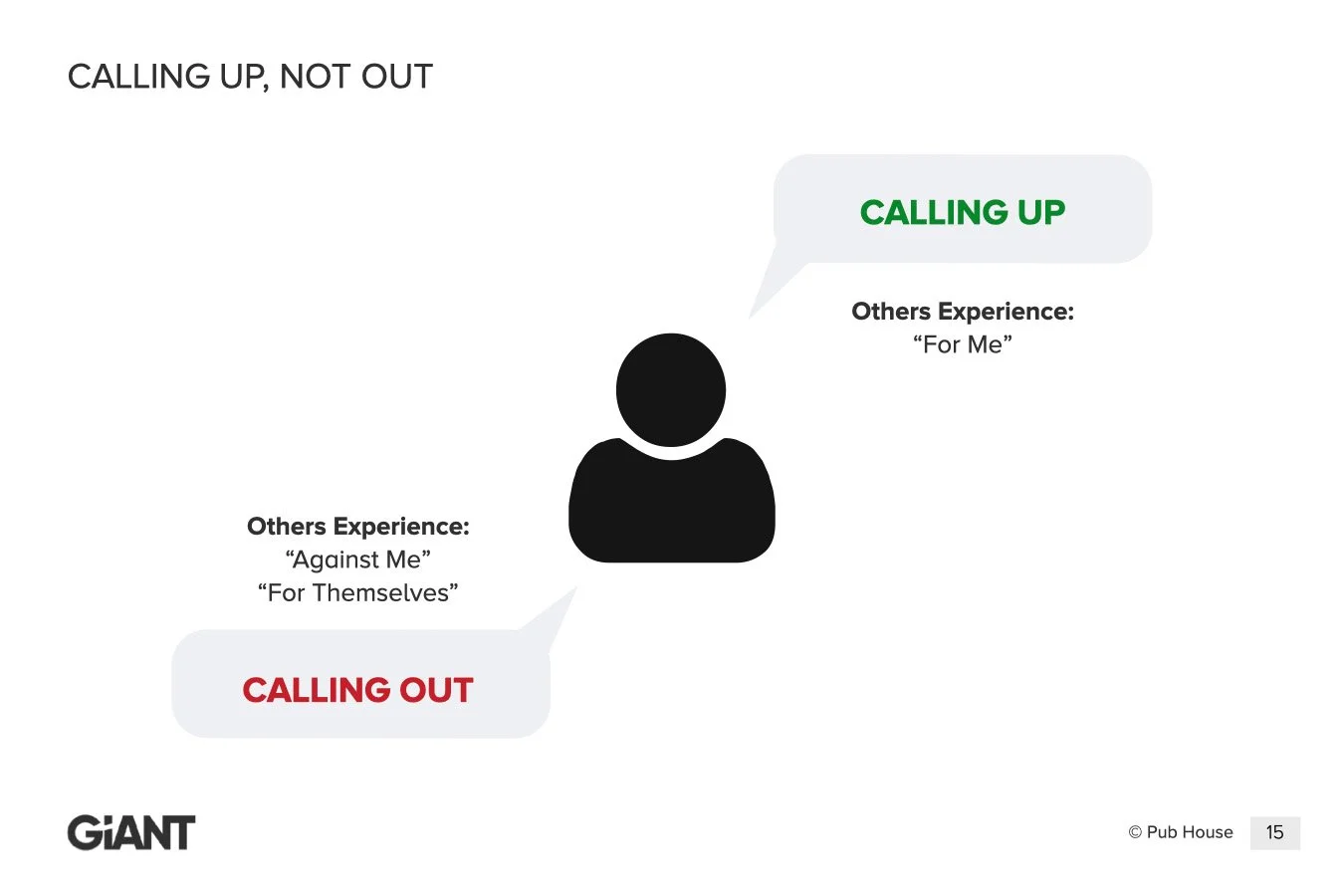Are You Calling Up or Calling Out?
Welcome to another Toolkit Tuesday! Every week, we aim to give you practical leadership tools to put in your toolkit.
Lately, I (Steve) have been reading Inner Excellence by Jim Murphy. You may have seen this book making headlines after A.J. Brown was spotted reading it on the sidelines of the Eagles playoff game. (Go Birds!) One of the most powerful insights from the book is something Murphy calls the “affluenza virus.”
The symptoms?
Being consumed by Possessions, Achievement, Looks, Money, and Status.
Making decisions that serve yourself rather than those around you.
Leading from a place of ego instead of impact.
It’s a subtle but dangerous mindset that can sneak into leadership—when the focus shifts from building others up to building ourselves up.
This ties directly to one of my favorite leadership tools—Calling Up vs. Calling Out.
The Tool: Calling Up vs. Calling Out
When we Call Out, we criticize, shame, or tear others down when they don’t meet expectations. It’s about power and control, and it often stems from a leader’s need to prove their own worth. It leaves others feeling like you are only for yourself.But when we Call Up, we challenge others from a place of belief. Instead of making it about ourselves, we fight for their highest possible good—encouraging and challenging them to step into their potential.It’s the difference between saying:
❌ “You’re not good enough.”
✅ “I see more in you. Let’s get there together.”
Why This Matters
If left unchecked, the “affluenza virus” can erode trust and culture. Leaders who focus on themselves—their status, power, or achievements—end up creating teams that feel unsupported, disengaged, or even resentful.On the other hand, when leaders shift their focus to others, they build teams that:
✔ Feel valued and challenged.
✔ Trust their leadership.
✔ Perform at a higher level because they know their leader believes in them.
The Result
That shift—from Calling Out to Calling Up—creates a culture where people don’t just comply; they commit. Instead of pushing people down, you’re pulling them forward. And the entire team gets better.
Action Steps
This week, take a moment to reflect:
Where are there moments when you’ve called out your team instead of calling them up?
How can you shift your approach to bring challenge from a place of belief instead of frustration?
Final Thought
The best leaders develop other leaders. If you want to build a high-performing team, let’s talk. Schedule a free strategy session, and we’ll explore how to apply the Calling Up approach to your leadership.

